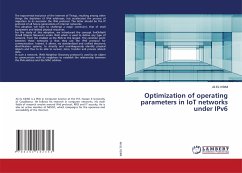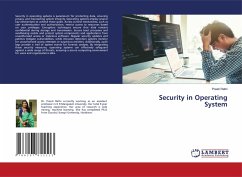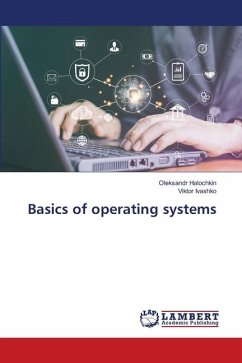
Optimization of operating parameters in IoT networks under IPv6
Versandkostenfrei!
Versandfertig in 6-10 Tagen
47,99 €
inkl. MwSt.

PAYBACK Punkte
24 °P sammeln!
The exponential evolution of the Internet of Things, resulting among other things the depletion of IPv4 addresses, has accelerated the process of migration to its successor the IPv6 protocol. The latter should be the IP protocol of all future generations of internet networks.This adoption will have to challenge a major constraint, that of small equipment and limited physical resources.For the study of this adoption, we introduced the concept SmObNet6 (Small Objects Networks under IPv6) which is used to define any type of network, from the smallest as the PAN to the largest. The common point be...
The exponential evolution of the Internet of Things, resulting among other things the depletion of IPv4 addresses, has accelerated the process of migration to its successor the IPv6 protocol. The latter should be the IP protocol of all future generations of internet networks.This adoption will have to challenge a major constraint, that of small equipment and limited physical resources.For the study of this adoption, we introduced the concept SmObNet6 (Small Objects Networks under IPv6) which is used to define any type of network, from the smallest as the PAN to the largest. The common point between these networks is that they use the IPv6 protocol for communication. Indeed, it allows, via standardized and unified electronic identification systems, to directly and unambiguously identify physical objects and thus to be able to recover, store, transfer and process related data.In such a network, IPv6's Neighbor Discovery protocol is used by an object to communicate with its neighbors to establish the relationship between the IPv6 address and the MAC address.












